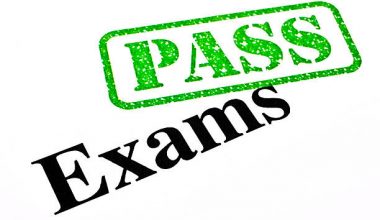For many students, English literature can be a daunting subject. The thought of having to pass exams in this challenging subject can be overwhelming. But do you really have to pass English literature? Is it a requirement for your academic or career goals?
English literature is a fundamental subject that is often required for many academic programs and career paths. It helps students develop critical thinking skills, improve their writing abilities, and gain a deeper understanding of culture and society. However, not everyone finds success in this subject, leading to the question of whether passing English literature is necessary.
While passing English literature may not be a strict requirement for every individual, it can open up many opportunities and enhance your overall academic and professional profile. In this article, we will look into the importance of passing English literature exams and why it may be beneficial for your future success.
Table of contents
- Is the English Language Different from English Literature?
- Do You Have to Pass English Literature if You Already Passed the English Language?
- What Happens If I Fail English Literature?
- What Grade Do You Need to Pass English Literature?
- Why is it Important to Pass the English Language in GCSE?
- Why is it Important to Pass the English Literature in GCSE?
- Which is More Important for Other Subjects: English Language or English Literature?
- Do I Have to Resit GCSE English Literature If I Pass GCSE English Language?
- GCSE English Language vs English Literature: Which is Hardest?
- Frequently Asked Questions
- Conclusion
- References
- Recommendations
Is the English Language Different from English Literature?
Yes, English language and English Literature are different subjects. English language is the study of the English language itself, including its grammar, vocabulary, and usage. It also includes the study of how language is used in different contexts, such as in speech, writing, and media.
On the other hand, English Literature is the study of written works in the English language, including novels, poems, plays, and other forms of creative writing. It focuses on the analysis and interpretation of these works, as well as the historical and cultural context in which they were written.
English language is the foundation of English literature. In order to understand and appreciate literature, you need to have a good understanding of the English language. However, English literature is more than just the study of language. It is also the study of human experience, history, and culture.
The table below summarizes the differences between the English language and English literature as subjects in school:
| Characteristic | English Language | English Literature |
|---|---|---|
| Focus | The English language itself | Written works in the English language |
| Topics covered | Grammar, vocabulary, usage, language in different contexts | Themes, characters, plot, setting, literary devices, historical and cultural context |
| Methods | Analysis, interpretation, research | Critical thinking, writing, research, appreciation for literature |
| Skills developed | Critical thinking, writing, communication | Critical thinking, writing, research, appreciation for literature |
Read Also: When Should You Start Revising For Your GCSEs?
Do You Have to Pass English Literature if You Already Passed the English Language?
No, you do not have to pass English literature if you have already passed the English language. English language and English literature are two different subjects, and they are assessed separately. The English language tests your knowledge of the language, while the English literature tests your understanding of written works in the language.
However, there are some cases where you may need to pass both English language and English literature. For example, if you are applying to a university that requires both subjects or if you are planning to study English literature at a higher level.
Basically, the decision of whether or not to take English literature depends on your individual goals and interests. If you are interested in the study of literature, then English literature can be a rewarding subject to pass. However, if you are not interested in literature, then you may not need to take the subject.
Read Also: Do You Have to do a Language at GCSE?
What Happens If I Fail English Literature?
If you fail English Lliterature there are a few things that can happen. The specific consequences will depend on your school or college, and your individual circumstances.
- You may have to retake the exam. This is the most common outcome. You can usually retake the exam in the following year, or in some cases, in the summer.
- You may be able to take an alternative qualification. Some schools and colleges offer alternative qualifications in English Literature, such as the International GCSE (IGCSE) or the Pearson Edexcel Level 2 Certificate in English Literature.
- You may have to repeat the year. This is less common, but it may be an option if you have failed other subjects as well.
- You may be able to appeal your grade. If you believe that your grade was unfair, you can appeal it to your school or college. They will then review your exam and decide whether to change your grade.
It is important to talk to your school or college about what will happen if you fail English Literature. They will be able to give you more specific information about your options.
What Grade Do You Need to Pass English Literature?
In England, Wales, and Northern Ireland, the grade you need to pass GCSE English Literature is 4. This is considered a standard pass. A grade of5 is considered a strong pass, and a grade 6 or above is considered an excellent pass.
The specific grade boundaries for each subject are set by the exam boards, and they can vary from year to year.
However, in general, a grade 4 in English Literature requires you to demonstrate a good understanding of the texts you have studied and to be able to write clear and concise essays.
Why is it Important to Pass the English Language in GCSE?
Passing the English Language GCSE is important for a number of reasons. Basically, it is a requirement for many jobs and further education courses.
Many employers and universities require a pass in the English Language as a minimum qualification. This is because English Language skills are essential for communication, critical thinking, and problem-solving.
Also, passing the English language helps you develop important skills for life. The English Language GCSE teaches you a range of skills that are essential for success in school, work, and life. These skills include:
- Reading comprehension: The ability to understand what you are reading.
- Writing skills: The ability to communicate your ideas clearly and effectively.
- Speaking skills: The ability to communicate your ideas orally.
- Listening skills: The ability to understand what others are saying.
- Grammar and punctuation: The ability to use the English language correctly.
- Vocabulary: The ability to understand and use a wide range of words.
In addition, the English language GCSE exam helps you appreciate the power of language. The English Language GCSE teaches you about the different ways that language can be used to communicate, inform, entertain, and persuade. This can help you to appreciate the power of language and to use it more effectively in your own life.
Why is it Important to Pass the English Literature in GCSE?
Even if you have passed the English language in your A level exams, passing English Literature in GCSE holds significant importance too.
Generally, studying literature exposes students to a wide range of cultural, historical, and social contexts. It provides insights into different perspectives, values, and experiences, fostering a broader cultural understanding.
Also, having a grasp of English Literature challenges students to engage with complex texts, expanding their vocabulary and enhancing their ability to express themselves effectively. This skill is invaluable in both academic and professional settings.
Since GCSE prepares students for the outside world, English literature breeds empathy and Understanding. Engaging with diverse characters and narratives fosters empathy and a deeper understanding of human experiences. This ability to relate to and understand others is a valuable life skill.
In addition, the study of literature often involves writing essays and analytical responses. This hones writing skills, teaching students to articulate their thoughts coherently and persuasively.
Which is More Important for Other Subjects: English Language or English Literature?
Generally, the English language is considered to be more important for other subjects. The curriculum of the English language teaches you a lifelong skill that you may need while preparing for other exams.
However, when closely debated, both English language and English literature are important for other subjects. The importance of each may solely depend on the subject. While the English language teaches the skills of reading comprehension, writing, grammar, and vocabulary, English literature teaches the skills of critical thinking, analysis, and interpretation.
English language skills are essential for success in many subjects, such as history, science, and mathematics. For example, in history, you need to be able to read and understand historical documents. In science, you need to be able to write clear and concise reports. In mathematics, you need to be able to use correct grammar and vocabulary.
On the other hand, English literature skills are essential for success in subjects such as philosophy, psychology, and sociology. For example, in philosophy, you need to be able to analyze and interpret philosophical texts. In psychology, you need to be able to critically think about psychological theories. In sociology, you need to be able to interpret sociological data.
Generally, the English language is more important for subjects that focus on factual information, while English literature is more important for subjects that focus on critical thinking and analysis. However, there are many exceptions to this rule.
Read Also: How to Revise For A-Level English Literature?
Do I Have to Resit GCSE English Literature If I Pass GCSE English Language?
No, you do not have to resit GCSE English Literature if you pass GCSE English Language. However, it is still a good idea to resit GCSE English Literature if you want to improve your grades or if you are planning on going to university or college.
GCSE English Language and GCSE English Literature are two separate qualifications, and they are not prerequisites for each other. GCSE English Language tests your skills in reading, writing, and speaking English, while GCSE English Literature tests your knowledge and understanding of English literature.
Here are some reasons why you should resit GCSE English Literature:
- It will improve your chances of getting into a good university or getting a good job.
- It will help you develop your critical thinking and analytical skills.
- It will give you a better understanding of literature and the English language.
- It will boost your confidence in your English skills.
GCSE English Language vs English Literature: Which is Hardest?
The difficulty of GCSE English Language and GCSE English Literature depends on the individual student’s strengths and weaknesses. However, in general, GCSE English Literature is considered to be a more challenging subject than GCSE English Language.
GCSE English Language tests students’ knowledge of grammar, punctuation, spelling, and vocabulary. It also tests their ability to write clearly and concisely. GCSE English Literature tests students’ knowledge of literary texts, their ability to analyze and interpret those texts, and their ability to write about them.
Some students may find GCSE English Language to be more difficult because it requires a more concrete understanding of the rules of language. Others may find GCSE English Literature to be more difficult because it requires more abstract thinking and interpretation. Ultimately, the difficulty of each subject will depend on the individual student.
Frequently Asked Questions
Yes, if your university requires students to have a certain grade in English Literature in order to be admitted.
There are many ways to improve your English Literature skills. Here are a few tips:
Read as much as you can. The more you read, the more familiar you will become with different types of texts and the different ways they can be interpreted.
Write about what you read. This will help you to develop your own ideas about texts and to learn how to express those ideas clearly and concisely.
Talk to your teacher or tutor about your work. They can give you feedback on your writing and help you to improve your skills.
Take practice exams. This will help you to get used to the format of the exam and the types of questions that are asked.
English Literature is considered to be a more challenging subject than English Language. It is presumed hard at A Level Exams.
Conclusion
English language and English Literature are distinct subjects that are graded separately. The answer to ” Do you have to pass English literature” depends on a number of factors.
While a pass in English language GCSE is required to advance both academically and professionally, a Grade 4 is essential in GCSE English literature if it is a requirement for the university you applied.
References
- The Student Room .co UK – What happens if I pass one English GCSE and not the other?
- Quora.com – Do I need an English literature GCSE? Will I have to retake it if I fail it?
- Think Student.Co.Uk – What’s Most Important: GCSE English Language or Literature?
Recommendations
- Is Chemistry A Level Hard? How Hard is A-Level Chemistry? (Compared To GCSE)
- Is Computer Science GCSE Hard? GCSE English Language Guide
- How Many GCSEs Do Students Take In 2024? 2024 Complete Guide
- Do You Have to do a Language at GCSE?
- What is the Difference Between Foundation and Higher Tier at GCSE?





